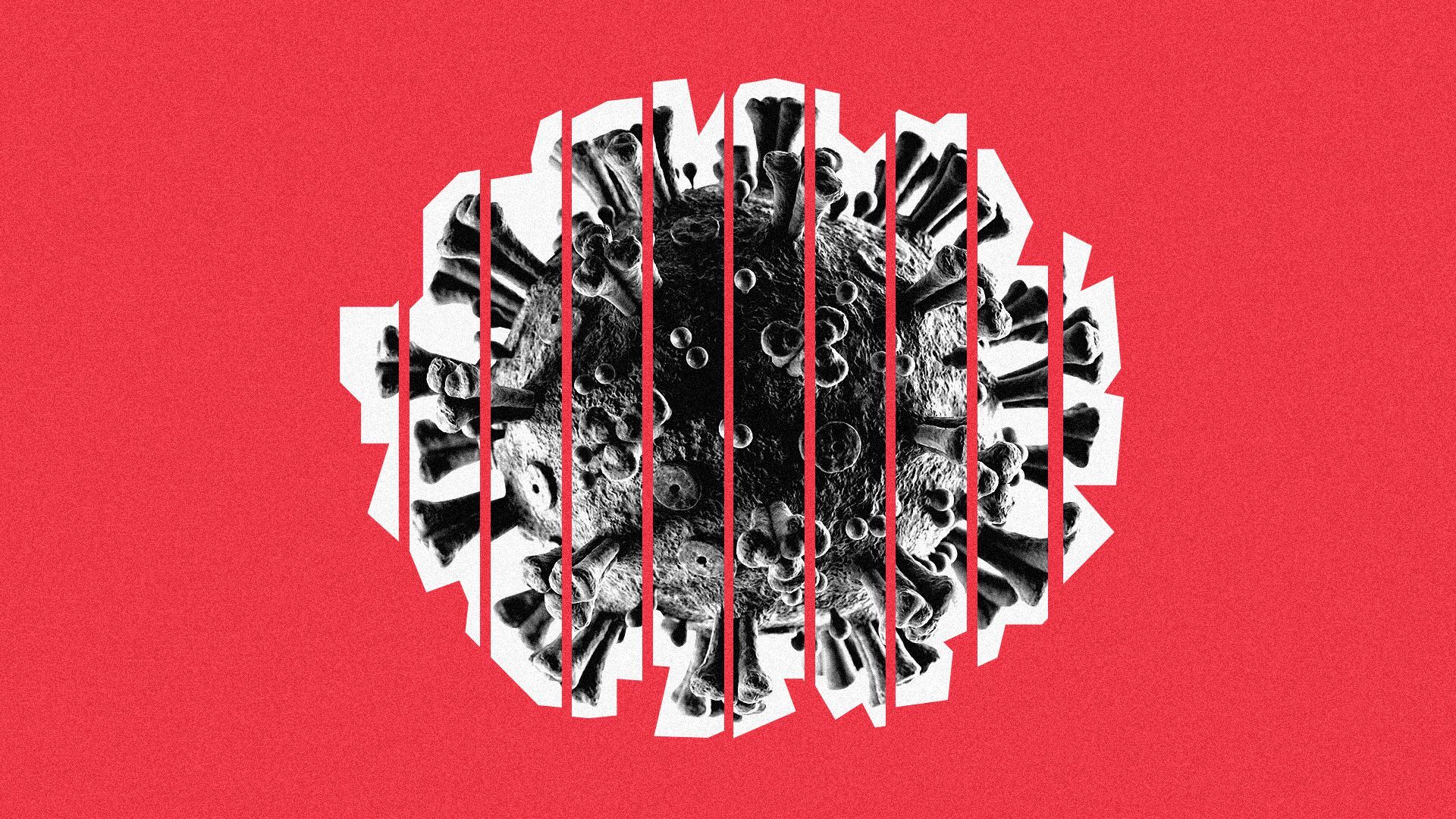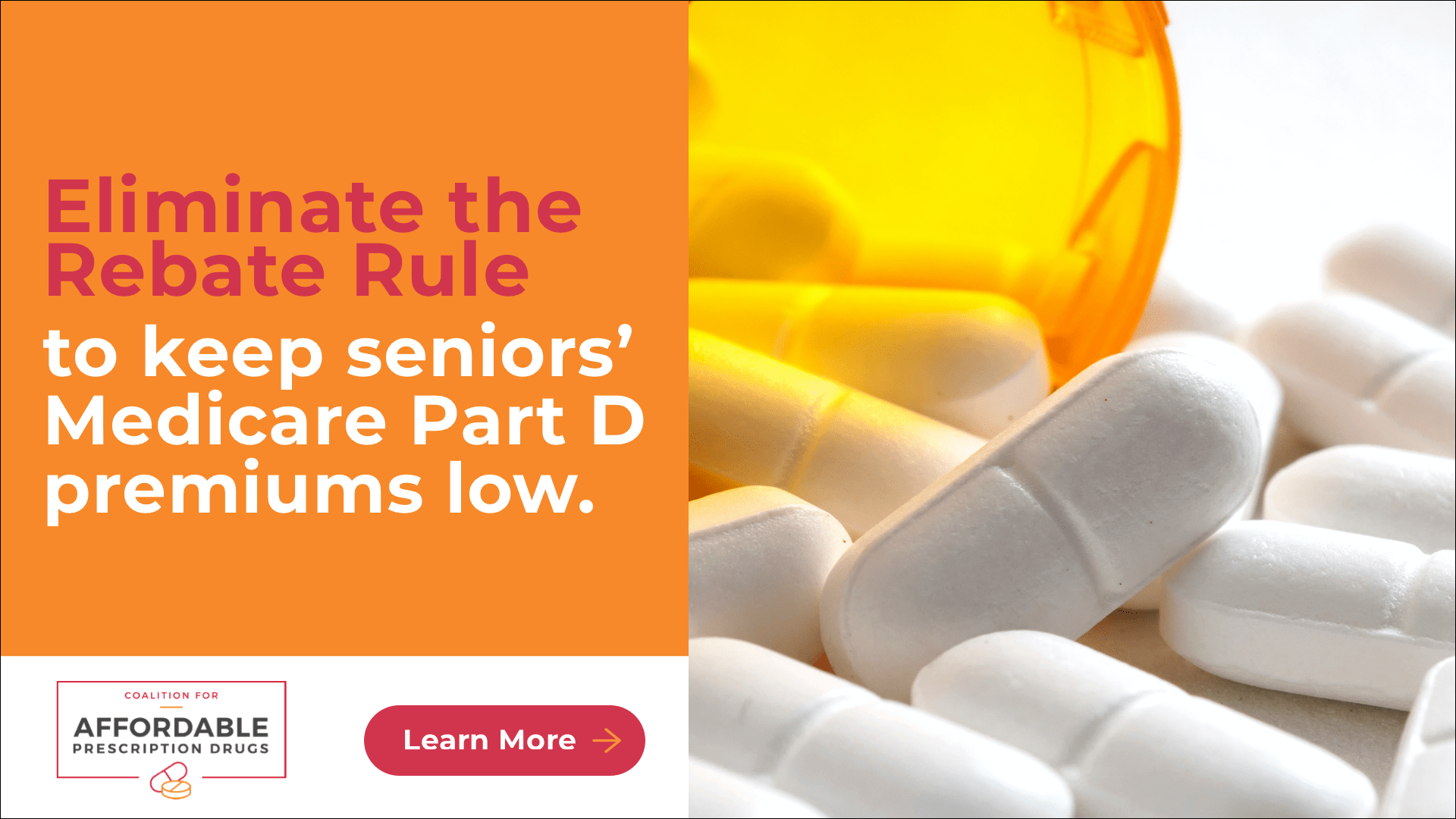| | | | | | | Presented By Coalition for Affordable Prescription Drugs | | | | Vitals | | By Caitlin Owens ·Apr 26, 2021 | | Good morning. Today's word count is 925, or a 3-minute read. | | | | | | 1 big thing: The next wave of the pandemic: Long COVID |  | | | Illustration: Annelise Capossela/Axios | | | | The research is becoming only more clear: People who have had COVID — even those who never had severe infections — are at risk of ongoing health problems, including some serious ones. Why it matters: Long after the majority of Americans are vaccinated, patients and the U.S. health system will likely bear the brunt of millions of people who are struggling to get back to normal. Driving the news: Two studies released last week emphasized how common it is for COVID survivors to require care months after their infection. - One study, published Thursday in Nature, found that, between one and six months post-infection, people whose coronavirus cases didn't require hospitalization had a 60% higher risk of death than people who hadn't been infected with the virus, per the New York Times.
- These non-hospitalized COVID patients also had a 20% greater chance of needing outpatient medical care over those six months post-infection. Their symptoms spanned across organ systems and also included mental health issues.
- Some could become chronic health conditions requiring lifelong treatment.
- "We found it all," Ziyad Al-Aly, chief of the research and development service at the VA St. Louis Health Care System and an author of the study, told NYT. "What was shocking about this when you put it all together was like 'Oh my God,' you see the scale."
A separate study, published Friday by the CDC, found that 69% of non-hospitalized adults who'd had COVID had one or more outpatient visits between 28 and 180 days after their diagnosis. Of these, two-thirds received a new primary diagnosis. - These patients disproportionately were women, were Black, had underlying health conditions, and were at least 50 years old.
- "Clinicians and health care systems should be aware of the possibility of medical encounters related to a previous diagnosis of COVID-19 beyond the acute illness," the authors conclude.
|     | | | | | | 2. Biden's 100-day numbers: Vaccinated Americans |  Data: CDC via Our World in Data; Chart: Will Chase/Axios Joe Biden promised as president-elect to get 100 million coronavirus vaccine shots in American arms during his first 100 days in office; since taking office, he's more than doubled that goal — and more than a quarter of Americans are now fully vaccinated, Axios' Stef Kight reports. By the numbers: Not quite 1% were vaccinated when Biden took office, although the Trump administration managed to reach an important milestone of 1 million doses administered in a day. - The Biden administration has since surpassed 4 million vaccine doses administered in a day three times, according to CDC data.
|     | | | | | | 3. Hesitancy still high among essential workers | | Essential workers who are not in health care are less likely to want a vaccine than the rest of the general public, according to new figures from the Kaiser Family Foundation. Why it matters: As vaccines become more available, health officials are increasingly grappling with vaccine hesitancy, particularly among those most at risk, Axios' Tina Reed reports. Details: According to the KFF COVID-19 Vaccine Monitor, more than 20% of essential workers who don't work in health care settings say they will definitely not get the vaccine, compared to 7% of non-essential workers. - Nearly half (48%) of essential workers not in health care settings have either already gotten the vaccine or will get it as soon as possible.
Be smart: 22% said they'd get a vaccine if their job gave them $200. Nearly 20% said $50 would be enough to convince them, and another 23% would get the vaccine if their employer arranged for a medical provider to come to their work to administer the vaccine. |     | | | | | | A message from Coalition for Affordable Prescription Drugs | | Protect seniors: eliminate the Rebate Rule for good | | |  | | | | The Biden Administration has delayed the Rebate Rule, temporarily protecting seniors from premium increases of up to 25%. Eliminating the rule will: - Maintain historically low Part D premiums.
- Create $170 billion in savings for urgent priorities.
- Protect seniors' high-quality coverage.
| | | | | | 4. U.S. to send India supplies | | The Biden administration pledged Sunday to send resources and supplies to India, as the country set a new daily COVID-19 cases record for a fourth straight day, Axios' Rebecca Falconer reports. The big picture: India's Health Ministry reported 349,691 more infections Sunday, as hospitals continued to be overwhelmed with coronavirus patients amid a widespread oxygen shortage. What they're saying: Secretary of State Tony Blinken tweeted late Saturday the U.S. was "working closely" with India's government. "We will rapidly deploy additional support to the people of India and India's health care heroes," he added. Zoom in: National Security Council spokesperson Emily Horne confirmed in a statement Sunday that PPE equipment, rapid diagnostic test kits, therapeutics, and ventilators would be among the supplies made available to India. - The U.S. Development Finance Corporation (DFC) will fund the manufacturing capability expansion of India's vaccine manufacturer, so that more vaccine doses can be produced.
- The U.S. will be deploying a team of public health advisors from the CDC and USAID to "work in close collaboration with the U.S. Embassy, India's health ministries, and India's Epidemic Intelligence Service staff."
What to watch: Biden's chief medical adviser, Anthony Fauci, didn't rule out on ABC's "This Week With George Stephanopoulos" the administration sending doses of the AstraZeneca vaccine not yet approved for use in the U.S. to India. - "I think that's going to be something that is up for active consideration," Fauci told host Stephanopoulos.
|     | | | | | | 5. Catch up quick |  | | | Illustration: Aïda Amer/Axios | | | | The CDC and FDA on Friday lifted the recommended pause on use of Johnson & Johnson's coronavirus vaccine, saying the benefits of the shot outweigh the risk of a rare blood clot disorder. Federal officials are recommending pregnant women get the COVID-19 vaccine, Centers for Disease Control and Prevention director Rochelle Walenksy announced at a White House briefing on Friday. The EU is planning to allow fully vaccinated Americans to visit and travel within its borders this summer, European Commission President Ursula von der Leyen told the New York Times Sunday. A fifth of Floridians are unwilling to receive a COVID-19 vaccine, and an additional 16% remain uncertain whether or not they'll get vaccinated, according to a new Morning Consult survey. Over 5 million Americans have missed their second shots of the mRNA vaccines by Pfizer or Moderna, the New York Times reports, citing data from the Centers for Disease Control and Prevention. Bars, department stores and theaters across Japan closed for 17 days Sunday, after Prime Minister Yoshihide Suga declared a state of emergency for Tokyo and three other prefectures in an attempt to curb surging COVID-19 cases. Iran on Saturday banned all flights to and from India and Pakistan to prevent the spread of the coronavirus, the Islamic Republic News Agency reports. |     | | | | | | A message from Coalition for Affordable Prescription Drugs | | Why eliminating the Rebate Rule is crucial to protect seniors | | |  | | | | The Trump Administration's prescription drug Rebate Rule will: - Raise seniors' premiums by up to 25%.
- Skyrocket government spending.
- Fail to deliver the lower drug costs that patients need.
Learn how eliminating the rule will protect seniors and save money. | | | | | | Axios thanks our partners for supporting our newsletters.
Sponsorship has no influence on editorial content. Axios, 3100 Clarendon Blvd, Suite 1300, Arlington VA 22201 | | | You received this email because you signed up for newsletters from Axios.
Change your preferences or unsubscribe here. | | | Was this email forwarded to you?
Sign up now to get Axios in your inbox. | | | | Follow Axios on social media:    | | | | | |
No comments:
Post a Comment